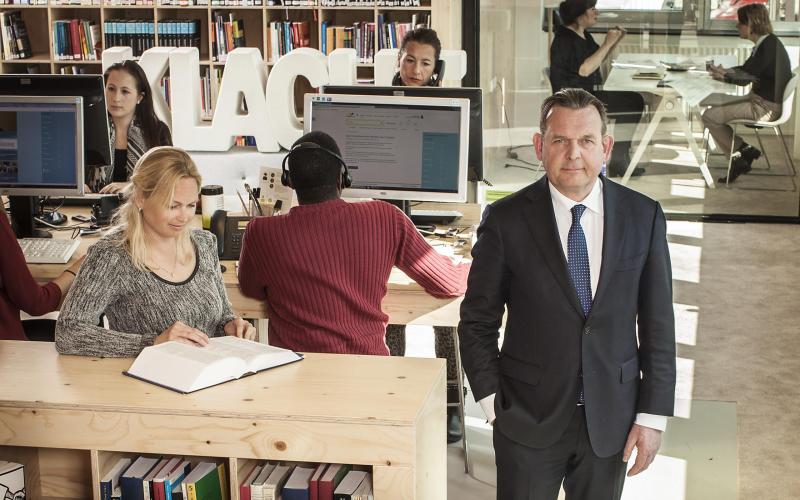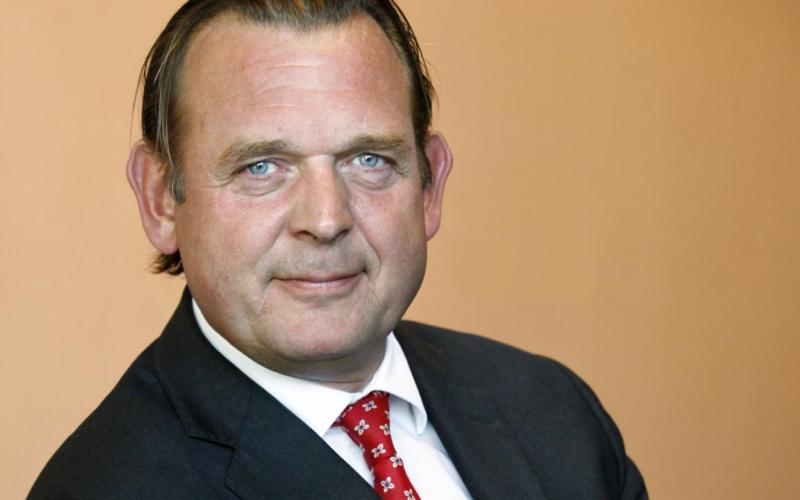“Government is making things more difficult.” Reinier van Zutphen talks about how the relationship between the government and the citizen must change, taking a critical look at the role and effectiveness of the National Ombudsman.
As National Ombudsman, Reinier van Zutphen has a clear mission. “Government exists for the benefit of the people, not vice versa. I have said this many times and I will continue working to ensure that it really is the case. There is still some way to go.
I often remind ministers and other officials of this fact, and I also remind parliament. If our elected officials are to take responsibility for the strength of our institutions, they must pass legislation which is both understandable and practicable. Anything less fails both the citizen and the staff who must implement that legislation.”
How accessible are government organisations and do they provide an appropriate level of service?
“Government is making things more difficult for the citizen, not least in terms of accessibility. There is a difference between what public sector authorities promise and what we actually see in practice. The debate sparked by the childcare allowance controversy often referred to ‘repressive policy’ and ‘a lack of compassion’. I think that is a fair comment, but there has been too little attention for the background to the situation. Why was there suddenly such a focus on fraud prevention? Was it because officials assumed that every citizen is untrustworthy? Were the rules overly complex to begin with?
Many people adopt the standpoint that ‘everyone is decent and fair’. That’s not quite true. Not everyone is a model citizen all the time. But one transgression does not make someone an out-and-out rogue. We do not refer to ‘difficult complainants’ but to ‘complex complaints behaviour’. We deal with people who, most of the time, are upstanding members of the community. They are often very kind to their children and cook for their neighbours three times a week when they are sick. But they see some alleged injustice and ‘kick up a fuss’.
On the whole, people do not complain about everything and anything, but they may have certain bugbears such as the police or the local authority. There is no such thing as a ‘difficult person’, but there are situations in which certain people show ‘difficult behaviour’. If that is due to overly complex rules and systems, we must put matters right.”
What is your view of the government’s corona support measures?
“When the pandemic first took hold, a raft of measures had to be put in place to ensure that companies and individuals did not suffer financially. Everything went reasonably well and many people received the support they needed. However, some support was in the form of loans and we have now reached the point at which people are required to begin repayments. The Minister of Social Affairs has said that leniency should be applied. I feel apprehensive.
In many cases, businesses only qualified for support if they met all the criteria for some other government scheme. Those who didn’t received nothing at all. And let’s not forget the forty thousand people in our country who have no permanent address. They were well cared for at first, often in hotels. But before long they were sent back on the streets and expected to fend for themselves. This is how people find themselves in a hopeless situation with no way out. The childcare benefits case shows a similar pattern. If we look back over the preceding five years, we see that there were no ‘serious incidents’ but ongoing government action that was not in the best interests of the citizen.”
A new parliamentary term has just begun. What do you wish to discuss with the new members?
“I am a parliamentary ombudsman, appointed by parliament. I must constantly ask myself whether I am fulfilling the responsibilities that entails. Do we provide adequate information to parliament? Do we equip members to consider all aspects of proposed legislation before it is actually passed? At present, I feel that too much of our advice is offered after the event.
One of the first things I would like to talk about is the question of the ombudsman’s remit and authority. Recently, much media attention was devoted to a benefits recipient who had been ordered to repay seven thousand euros because she had accepted groceries from her mother over a period of years. The local authority concerned acted on information received from an organisation working on behalf of several other authorities in the region, whereupon it is difficult to determine where to take a complaint. This is a ridiculous situation and one that I intend to follow up.
It must always be very clear whom to contact with a complaint, and how to take that complaint further if it is not resolved. There are still too many institutions which lack transparent procedures. We must ascertain whether they accept complaints and whether those complaints are dealt with properly. Is there anyone who oversees the process and who can be contacted for information? We are talking about services in the general public interest. In my view, the ombudsman function must be properly organised and I would welcome the opportunity to discuss this with the new parliament.
A while back, I happened to chance upon a copy of The Magic Lantern by Timothy Garten Ash. Published in 1990, it is about the fall of communism in Eastern Europe. The author quotes Václav Havel following his election as president of (then) Czechoslovakia: “My people, your government has returned!” For me, this is what it’s all about: your government, a government in the service of the citizen. That is worth fighting for and defending.”
How has the institution of National Ombudsman developed in recent years?
“I think that we have become even more relevant by virtue of the investigations we undertake on our own initiative. They are always highly relevant to current societal issues. Take the three-part study examining poverty in the Caribbean Netherlands for example, the investigation of problems affecting the accessibility of healthcare services, or our report on the social and financial situation of those living in women’s refuges.
Our work is prompted by signals from society. In the past we would ‘peer over the wall’, attempting to observe developments. Today, we engage in active conversation. This is a significant shift in approach, but a necessary one. We now think and act more explicitly from the citizen’s perspective.”
What do you consider more important: effectiveness or visibility?
“The National Ombudsman is the designated ombudsman organisation for all provincial (regional) authorities and many local authorities: the ‘municipalities’. In recent years, we have therefore become far more active at the local level. We increasingly act as a ‘sparring partner’, sometimes in a prominent role but often less visibly, in the background. We can be very effective without always being in the spotlight, although visibility does enhance effectiveness in some situations. There is no need for us to produce a comprehensive report about every issue. Many complaints can be resolved with a simple intervention or a letter setting out our standpoint. This increases both the effectiveness and efficiency of our work. However, this ‘softly, softly’ approach means that we remain largely invisible.
We receive many queries from local authorities and other organisations which deal with the general public, asking whether we have dealt with a particular matter in the past. This has prompted us to set up a platform known as the ‘Raadbaak’. It is a community of practice through which professionals can exchange knowledge and best practice examples. Similarly, researchers and legal practitioners approach us for information about our standpoint on whether government action is in keeping with current legislation and meets all the criteria of ‘good governance’? This type of query requires a written answer, whether in the form of a report or a ‘report letter’.
We constantly think about the societal value of the information we provide and how this ‘ombudsprudence’ can be recorded and disseminated, but our intention is not to produce as many reports as possible. Wherever possible, letters which include a standpoint or recommendation are now made available in the public domain. This is valuable information that we do not wish to keep to ourselves as we did in the past.”
There seem to be more ‘ombudsmen’ of late. What is your view of this development?
“Everyone in the Netherlands has a right to good and effective ombudsman services. I therefore support any development that makes it easier to complain about public sector service provision, or helps government organisations to improve their performance. They must be alert to all signs of discontent, whether from the public they serve or those who work within the organisation itself. However, the title of ‘ombudsman’ should be used with caution. A proliferation of ombudsmen can only cause confusion, which is why I find it regrettable that there are now university ‘ombudsmen’, police ‘ombudsmen’, ‘ombudsmen’ for the social domain and ‘ombudsmen’ for local government, not least because the National Ombudsman already performs this role for the police, the education sector and most local authorities.
It therefore falls to us to make clear what the National Ombudsman does, what we stand for and when a citizen should contact us for help. At the same time, I am keen to bring all local ombudsman services together to share knowledge and expertise. After all, we have a common aim: to ensure that everything is well organised for the citizen.”
Photo: Freek van den Bergh

